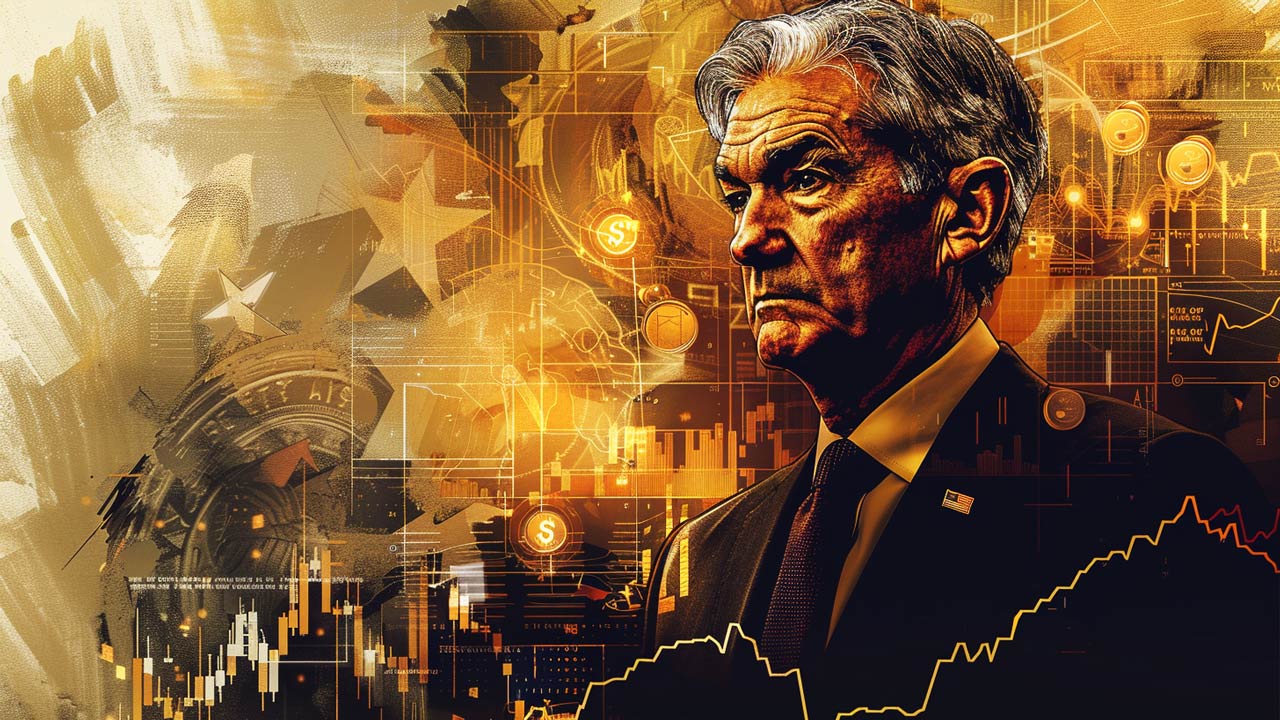Inflation Is a Policy That Cannot Last
Are we heading toward a Fed policy that fixes inflation at a permanent rate of five to six percent?
We could be.
But inflation is a policy that cannot last.
We’re currently experiencing a massive wave of price inflation. This should come as no surprise. The Fed has increased the M2 money supply by around 40% since the end of 2019. The US government showered that newly created money on American consumers in the form of stimulus. Meanwhile, governments effectively shut down the US economy. That led to a big drop in production. This created the perfect inflationary storm. We have more money chasing fewer goods and services.
Prices are rising.
Now the Federal Reserve has a big problem. It needs to tighten monetary policy to take on inflation. But the economy depends on easy money. Economic growth is built on borrowing. Any significant tightening of monetary policy will pop the bubble and the whole house of cards will fall down.
The Fed has finally abandoned the “transitory” inflation narrative and it appears to be getting more serious about addressing the issue. But how will the central bank really play this?
In an article published by the Mises Wire, economist Thorsten Polleit asserts there are basically two scenarios in play.
(1) The Fed means business; it really wants to lower consumer goods price inflation back toward the 2% mark.
(2) The Fed just wants to keep inflation from spiraling out of control, but it does not want to abandon the new regime of increased inflation.
Scenario (1) is not impossible, but it is relatively unlikely. Under the prevailing economic and political doctrine, the Fed is not meant to curb inflation at the expense of triggering another economic and financial crisis. Weighing the costs of a recession against the costs of higher inflation, the latter is considered the lesser evil, especially since many people have probably not lived through a period of high inflation and do not know much about the economic, social, and political damage caused by persistent higher inflation.
Scenario (2) appears to be more likely. That means that the Fed would take its foot off the monetary policy accelerator a little—by reducing its monthly bond purchases (that is, reducing the rate of increasing the quantity of money) and/or raising interest rates. However, such tightening of policy would not be intended to cause a recession-depression to rebalance the economy. It would only intend to keep inflation from spinning out of control and, at the same time, allow inflation to settle at a higher level, in the range of 4 to 6 percent per year, permanently.
Let that sink in for a moment. If Polleit is correct, we could be looking at prices increasing by up to 6% per year as a matter of policy.
Polleit believes this would postpone the inevitable, but it would not solve the underlying problem – which is inflation. You can’t fight inflation with inflation.
Ultimately, inflation (in the true sense of the word – the expanding money supply) cannot last.
Economist Ludwig von Mises warned against such an inflation policy.
With regard to these endeavors, we must emphasize three points. First: Inflationary or expansionist policy must result in overconsumption on the one hand and in mal-investment on the other. It thus squanders capital and impairs the future state of want-satisfaction. Second: The inflationary process does not remove the necessity of adjusting production and reallocating resources. It merely postpones it and thereby makes it more troublesome. Third: Inflation cannot be employed as a permanent policy because it must, when continued, finally result in a breakdown of the monetary system.”
The question then becomes: how long until that inevitable breakdown occurs?





 Since Nayib Bukele became president of El Salvador, El Salvador has been in American media and global political discussion more than ever. While much of the attention focuses on Bukele’s mass incarceration of gang members and a decline in homicide of over 70%, Bukele has also drawn attention to his favoritism towards Bitcoin and how he […]
Since Nayib Bukele became president of El Salvador, El Salvador has been in American media and global political discussion more than ever. While much of the attention focuses on Bukele’s mass incarceration of gang members and a decline in homicide of over 70%, Bukele has also drawn attention to his favoritism towards Bitcoin and how he […] With gold hitting yet another awe-inspiring all-time high in the wake of Powell’s remarks reassuring markets (more or less) to expect rate cuts in 2024, a few analysts are pointing out risk factors for a correction — so is there really still room to run?
With gold hitting yet another awe-inspiring all-time high in the wake of Powell’s remarks reassuring markets (more or less) to expect rate cuts in 2024, a few analysts are pointing out risk factors for a correction — so is there really still room to run? Gold hit a new all-time nominal high, surpassing the previous record set in December of the previous year. The precious metal’s price reached approximately $2,140, indicating a robust and continuing interest in gold as a safe-haven asset, despite a rather peculiar lack of fanfare from the media and retail investors. This latest peak in gold […]
Gold hit a new all-time nominal high, surpassing the previous record set in December of the previous year. The precious metal’s price reached approximately $2,140, indicating a robust and continuing interest in gold as a safe-haven asset, despite a rather peculiar lack of fanfare from the media and retail investors. This latest peak in gold […] The gold price has been surging, with unprecedented central bank demand gobbling up supply. It has been a force to behold — especially as US monetary policy has been relatively tight since 2022, and 10-year Treasury yields have rocketed up, which generally puts firm downward pressure on gold against USD.
The gold price has been surging, with unprecedented central bank demand gobbling up supply. It has been a force to behold — especially as US monetary policy has been relatively tight since 2022, and 10-year Treasury yields have rocketed up, which generally puts firm downward pressure on gold against USD.  Total gold demand hit an all-time high in 2023, according to a recent report released by the World Gold Council. Last week, the World Gold Council (WGC) released its Gold Demand Trends report, which tracks developments in the demand for and use of gold around the world. Excluding over-the-counter (OTC) trade, 2023 gold demand fell slightly from 2022 […]
Total gold demand hit an all-time high in 2023, according to a recent report released by the World Gold Council. Last week, the World Gold Council (WGC) released its Gold Demand Trends report, which tracks developments in the demand for and use of gold around the world. Excluding over-the-counter (OTC) trade, 2023 gold demand fell slightly from 2022 […]